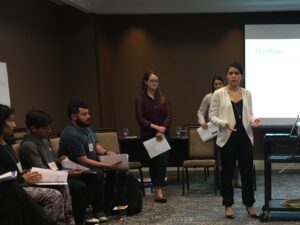During Douglas Bell’s first day of work, he stepped off a township garbage truck while it was moving and sustained a fatal head injury. Bell was not an employee of the township. Rather, Bell had been placed in the job with the township by a staffing agency as a “temp” worker. Both the staffing agency and the township were aware that Bell had never ridden on the back of a garbage truck. Each expected the other to make sure Bell was prepared to perform the job that day.
Bell’s tragic death highlights the problems with temp work. In an employment relationship with three players, host employers and staffing agencies can “pass the buck” between one another, evading employer responsibilities to the detriment of the temp worker. Read more here about the increasing phenomenon of temp work in Pennsylvania and the ways in which temp workers are at special risk for workplace injury and financial harm.
Pennsylvania Workers in Jeopardy: The Hidden Problem of Temporary Employment was written by law students, Rebecca Daily, Tracie Johnson, and Holly Smith, in the Social Justice Lawyering Clinic. See today’s article in the Philadelphia Inquirer about the report.

 Social Justice Lawyering Clinic Students Tessa Carson (’17), Emily Diaz (’18), and Ashley Rotchford (’18) created the
Social Justice Lawyering Clinic Students Tessa Carson (’17), Emily Diaz (’18), and Ashley Rotchford (’18) created the 
